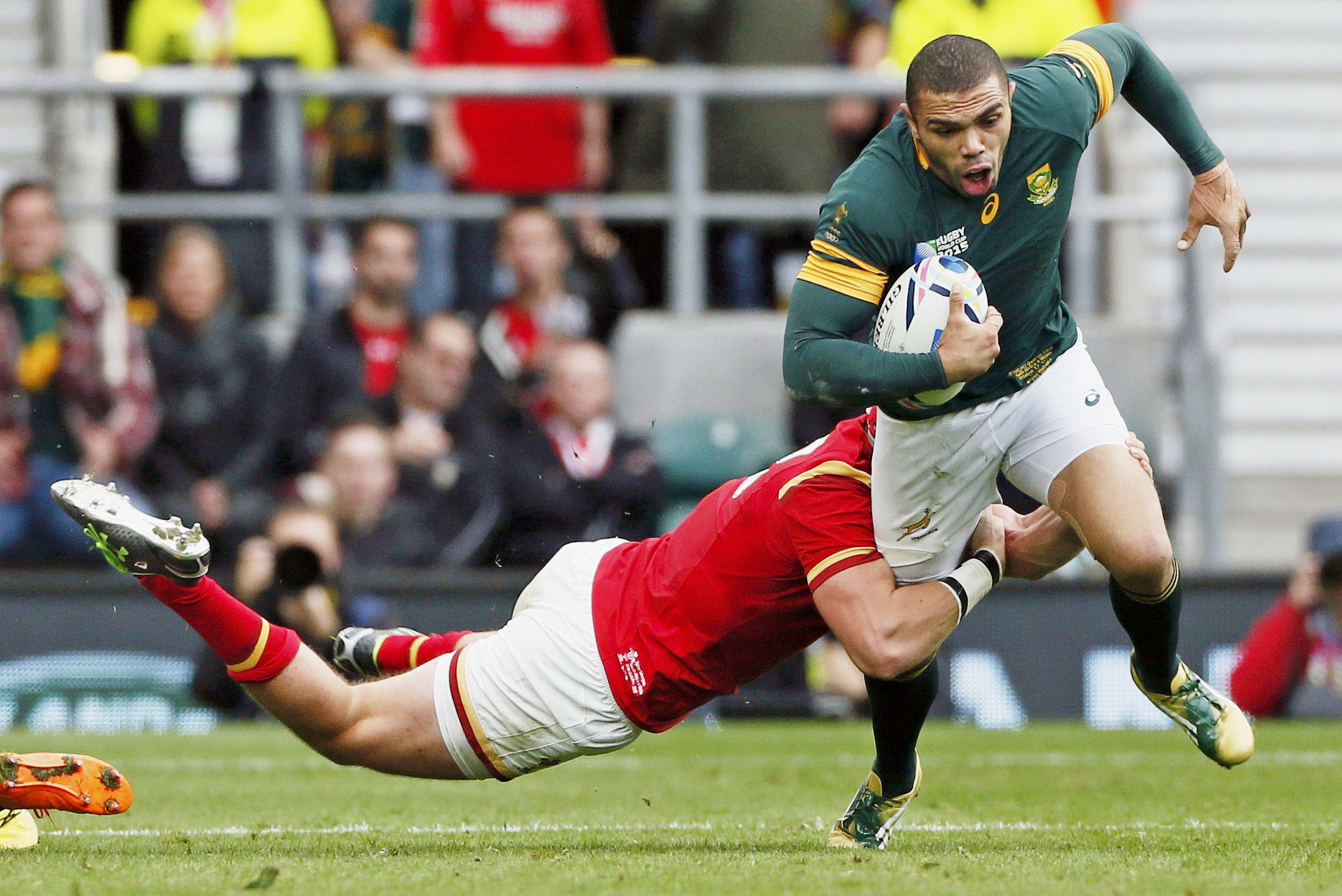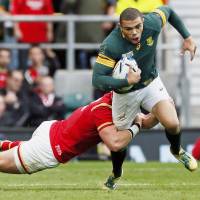The head of the Rugby World Cup is confident that Japan can transform itself into a rugby-mad nation by 2019 and make the first tournament to be held in Asia a success.
A Rugby World Cup delegation including chief Alan Gilpin arrived in Tokyo last Sunday to spend a week liaising with Japan 2019 organizers, four months after the 2015 tournament in England shattered attendance records and captured the world's attention.
Over 2.47 million match tickets were sold for the six-week 2015 tournament in addition to an official "fanzone" attendance of more than a million, with the final between New Zealand and Australia being watched by an estimated 120 million TV viewers.
The Japanese public played its part in England 2015's success by setting a new TV viewing record of 25 million for the Brave Blossoms' group-stage win over Samoa, and Gilpin believes interest will continue to grow as Japan prepares to host the event in 2019.
"We know that the landscape of rugby union here in Japan is very different to England," Gilpin told reporters on Tuesday. "We also know that the landscape for rugby here in Japan is different to how it was six months ago. There is an audience that is excited.
"Part of marketing for Rugby World Cup 2019 will be about showing the people of Japan that this a big event, a World Cup taking place in their city, in their town, in their country. Their pride in their country means they should be part of that event. A lot of people who will enjoy Rugby World Cup 2019 in very full and vibrant stadiums won't necessarily be people who in 2016 would call themselves rugby fans."
Japan's performance in England, where the Brave Blossoms stunned South Africa in their opening game but missed out on a quarterfinal place despite subsequent wins over Samoa and the United States, has sparked a wave of rugby fever in Japan and made superstars of national team players such as Ayumu Goromaru and captain Michael Leitch.
Japanese rugby is hoping to capitalize with the Tokyo-based Sunwolves making their debut in Super Rugby on Saturday, and Gilpin is happy with what he sees.
"We're excited to see that the World Cup halo effect still shines very brightly here in Tokyo and across Japan, with the continuation of 'Goromania,' the launch of the Sunwolves this coming weekend and an exciting program of fixtures for the Japanese national team as they begin their own journey toward a home World Cup," said Gilpin.
"We're very excited and pleased about the progress that is being made here in Japan. In many respects, the preparation here is ahead of the preparation at the same stage of previous World Cups."
Japan 2019 organizers were dealt a heavy blow last summer when Prime Minister Shinzo Abe sent the design for the new National Stadium — which was set to host the tournament's opening game and final — back to the drawing board amid ballooning costs.
Organizers were forced to name Nissan Stadium in Yokohama as the replacement final venue with the redesigned National Stadium not set for completion until November 2019, but England 2015 managing director Stephen Brown insists Japan is further ahead with its planning than his own team was at the same stage.
"One thing we didn't have this far out was all our venues," said Brown. "The good thing about Japan 2019 is that they do have the venues selected.
"I think the biggest challenge we had at this stage was how many tickets we were going to sell. I would imagine that's a similar challenge here, and getting enough interest and promoting the event fully in the country. But I think the organization has the right people in place to do that."
Gilpin warned that the budget for a Rugby World Cup is "a very complex one" that "changes many times," but Akira Shimazu, CEO of the 2019 organizing committee, pledged that Japan will do things its own way.
"In 2019, we have to put on a World Cup that is essentially Japanese," said Shimazu. "We can't just try to copy England."




